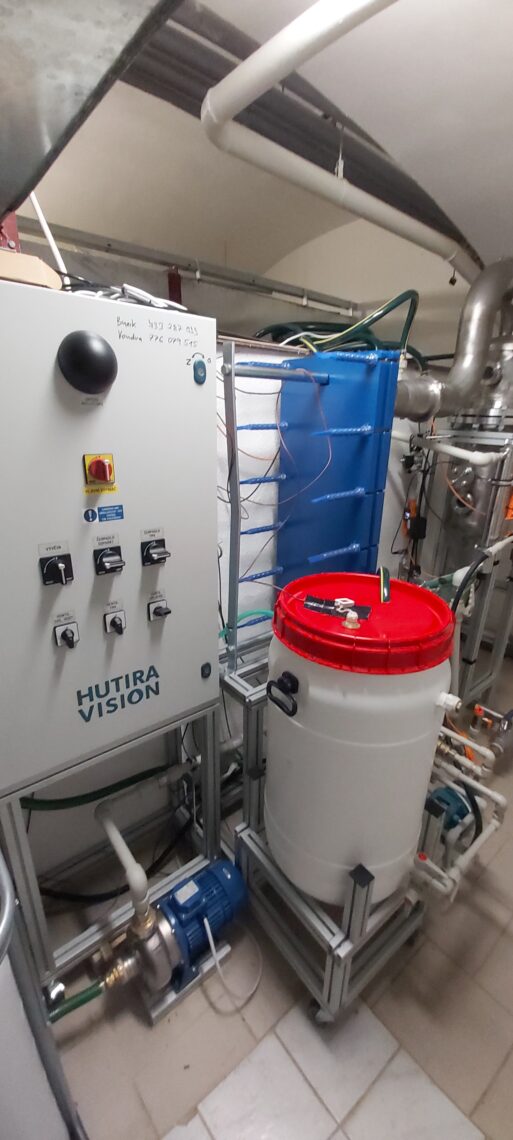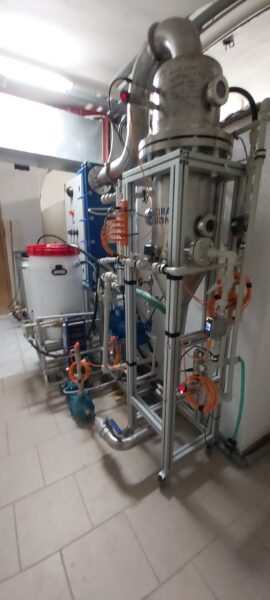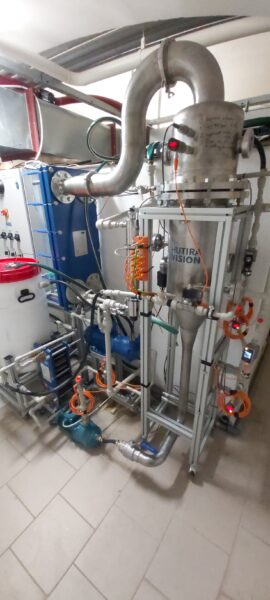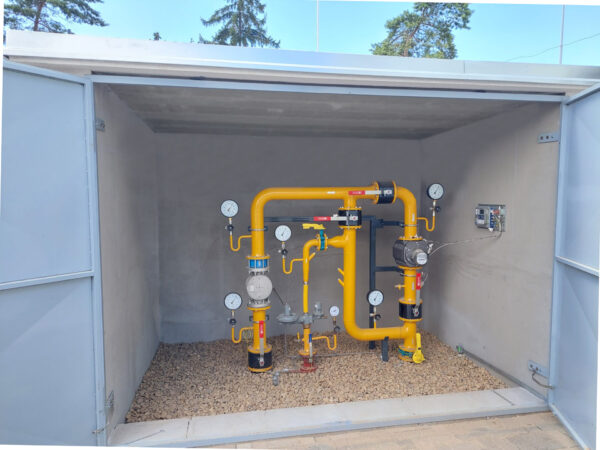10. 10. 2022
HUTIRA – VISION technologies make it possible to treat even heavily polluted water. This saves costs and increases capacity for companies
Domestic companies are beginning to focus more on sustainable water management. A common solution for them is to recycle wastewater that cannot be treated by conventional municipal wastewater treatment plants. The treated water is then generally used as non-potable water in their operational activities. Companies can therefore not only save money, but at the same time, for example, resolve the limited supply from waterworks. The popularity of recycling is expected to continue to grow in the future. Whether as a result of grants or a possible amendment of legislation, which does not yet know the term recycled wastewater.
Many domestic industrial companies are struggling with how to deal with excess wastewater. At some plants, the volume is so large that a standard municipal wastewater treatment plant cannot treat it efficiently. In many cases, industrial wastewater contains substances that negatively affect the treatment processes at municipal wastewater treatment plants. This wastewater does not meet the standards and companies are not allowed to discharge it in this state at all.
“In recent months, many large industrial plants have become more interested in wastewater recycling and its possible reuse. This trend concerns mainly food and chemical companies, which already draw the highest possible amount of water from waterworks. Alternatively, they have maximised the capacity of their own wells. The drive for a more sustainable approach by many companies also has a role to play. Last but not least, the growing trend of recycling industrial wastewater is also influenced by the overall increase in prices and utilities costs,” explains Petr Hajný, Director of HUTIRA – VISION, which has technologies that make it possible to treat even heavily polluted water, often to the level of drinking water or demineralised process water.
Industrial companies are often faced with the decision whether to invest tens or hundreds of millions in their own water treatment plants or to pay specialized companies for wastewater disposal. “We are currently trying to offer an alternative technology aimed at reducing both investment and operating costs. Although it is very space-saving, it can process comparable amounts of wastewater – from small plants with a production of units of cubic meters of water per day to large plants that produce thousands of cubic meters of water per day,” added Mr Hajný.
Wastewater recycling will be supported by grants and hopefully also by legislation soon
It can be expected that the demand for more efficient wastewater management will become more and more frequent in industrial enterprises. One of the current reasons is the possibility of obtaining grants from the recovery fund for water management and water saving measures. A condition for submitting an application is that a so-called water audit is required, which summarises possible water management measures.
According to the director of HUTIRA – VISION, the popularity of recycling could also increase with a change in legislation aiming at wider possibilities of using treated wastewater within a given facility. “The Czech legislation does not yet know the term recycled wastewater, so the ways of using such treated water are therefore limited. However, we believe that given the development of recycling technologies, the approach of domestic laws will soon change,” Mr Hajný explains why companies usually use purified water as non-potable water in their operation activities.
Let’s keep energy consumption to a minimum
As the treatment processes themselves are very power-intensive, we are looking for ways to reduce the energy intensity of these processes in industrial plants. HUTIRA – VISION technologies use energy from waste heat for part of the recycling process, such as steam escaping from the boiler room or heat discharged outside the production plant to eliminate overheating of some equipment. “In some cases, it is then possible to use the surplus waste heat energy in other parts of production,” adds Mr Hajný from HUTIRA – VISION, which, in addition to supplying technological units for industrial companies, also assembles containerized or mobile water treatment plants that can be used during water supply accidents, natural disasters or war conflicts.




